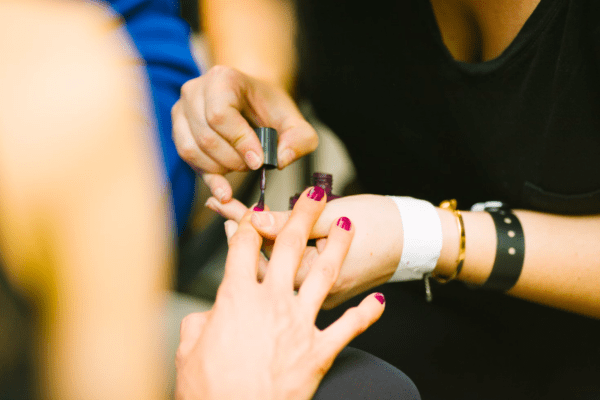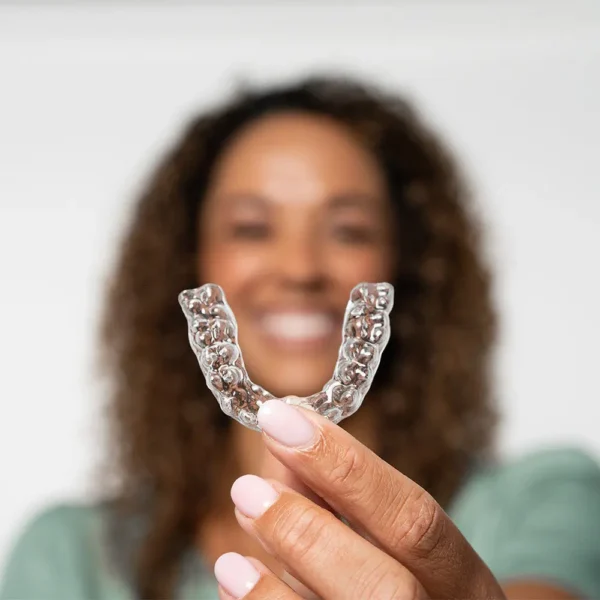
April Showers Don’t Bring Flowers? How April Rain Could be Ruining Your Hair
After a surprisingly warm and sunny start to spring, it’s no shock that the weather has inevitably taken a turn for the worse. But while the April showers might be good for our gardens, the same can’t be said for our hair. From frizziness to long-term health issues, here’s why you should avoid getting your hair wet with rainwater…

Pollutants
Whoever said ‘a little rain never hurt anybody’ didn’t know about all the pollutants currently in our rainwater. Studies have found that ‘forever chemicals’ in rainwater, also known as PFAS, now greatly exceed safety levels in all parts of the world.
While PFAS is used in some haircare products to help smooth the hair and add shine, frequent exposure can be absorbed into the bloodstream and has been linked to health issues, including increasing the risk of cancer and weakening immune systems.
Not only does our rainwater contain these harmful forever chemicals, but also bacteria. This is often why hair feels greasier after getting caught in a rainstorm. Not washing rainwater out of your hair could lead to scalp issues such as dryness and dandruff. So, you should think twice before heading out without an umbrella.
Frizziness
Spring showers mean there is more humidity in the air which, for a lot of us, means battling a frizzy mess. High moisture in the air disrupts the hydrogen bonds in your hair, causing it to puff up and quickly turning a sleek style into a messy nightmare. This is made even worse in the spring season with frequently changing weather and temperatures.
Frizzy hair is also more prone to breakage, especially when dry, so it’s crucial to maintain moisture. Regular deep conditioning treatments and hydrating masks, as well as leave-in conditioners, oils and serums, are best for not only boosting shine but also helping fend off frizz.
Always make sure your hair is fully dry before heading out in humid weather. Damp hair will soak up extra moisture and turn frizzy fast, so always keep an umbrella handy for those surprise April showers.
Brittle lengths
Rainwater contains minerals that, if allowed to settle on the hair or scalp for too long, can affect its pH levels and affect its ability to retain moisture, causing it to become dry, dull and lifeless.
Hair soaked in rainwater is also more likely to get tangled and break due to the weaker hair structure.
What should you do if your hair gets wet in a rainstorm?
Getting caught in a light drizzle on occasion is highly unlikely to cause much damage to your locks. However, if your hair has been soaked in a storm, you should ideally jump in the shower to wash out any rainwater with shampoo. If you’re not able to, quickly rinsing with clean water will help wash out any major impurities.
It’s also important you dry your hair as soon as possible. Leaving hair damp for too long can lift hair cuticles, clog hair follicles and create a moist surface for dirt and oil to build up, resulting in scalp irritation or even dandruff.
If you have access to a hairdryer, this is ideal for avoiding post-rain frizz. Controlled heat helps smooth the hair cuticle, sealing it off from humid air. Just remember to always use a good heat protectant and opt for cooler settings to avoid heat damage.
Alternatively, drying your locks with a microfibre towel is also a good option here, as its finer fibres will help to absorb excess water without too much abrasion.
What hair products can protect against April showers?
I’d recommend you oil your ends to not only provide your lengths with added moisture to fight frizz but also to create a barrier between your hair and rainwater.
You may also want to consider a leave-in silicone spray conditioner if your hair is especially vulnerable to rainwater frizz, such as if you have coarse, damaged or curly hair. Those with hair extensions can also benefit from silicone sprays to reduce tangling and static.
If you do decide to switch to products with silicones, be sure to use a clarifying shampoo on your natural hair every couple of weeks to avoid product buildup.
What are the best hairstyles for rainy days?
The goal of rainy-day hairstyles should be to get your hair off your face and minimise frizz.
The best styles for a super easy and chic look are the slicked-back ponytail, bun or braids.
Pulling your hair back off your face will ensure it doesn’t get blown around by the wind while grouping it minimises the scalp’s exposure to potential pollutants.
If you’re considering a hat or hood, be mindful that anything too tight or made from abrasive fibres might cause friction on your locks or reduce airflow to the scalp, which can cause hair loss. Instead, select an accessory that keeps your hair dry, loose fitting and made from breathable materials like cotton.
Written by Nicole Petty, Hair Expert, Milk & Blush













































